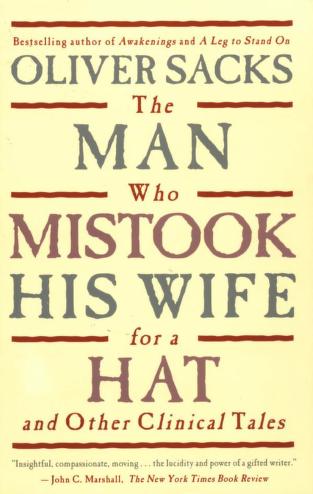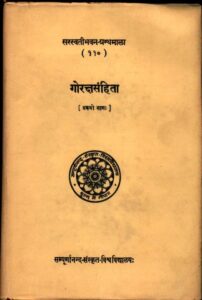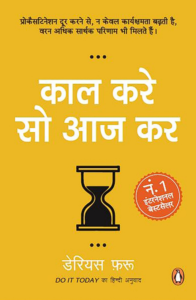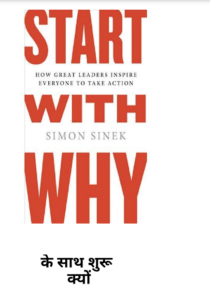The Man Who Mistook His Wife For A Hat: And Other Clinical Tales PDF Free Download
| Name of Book | The Man Who Mistook His Wife For A Hat: And Other Clinical Tales PDF |
| Name of Author | Oliver Sacks |
| Language of Book | English |
| Size of Book | 1 MB |
| Total pages in Ebook | 122 |
| Category of Book | Educational Books |
The Man Who Mistook His Wife For A Hat: And Other Clinical Tales summary
Oliver Sacks’s book is like a window into extraordinary minds. It’s a collection of stories about people with unusual brain conditions.
Imagine someone mistaking their wife for a hat! Or people who can’t recognize faces, or those who lose their sense of self. Sacks, a doctor, shares these incredible tales with such warmth and empathy that you feel like you’re right there with the patients.
He doesn’t just talk about medical stuff. He shows us how these conditions affect people’s lives, their joys, their struggles, and their unique ways of seeing the world. It’s a book that makes you think about what it means to be human, and how amazing our brains really are.
It’s like a mix of mystery, science, and human interest stories.
The last thing one settles in writing a book, Pascal observes, “is what one should put in first.” So, having written, collected, and arranged these strange tales, having selected a title and two epigraphs, I must now examine what I have done and why.
Doubleness and Contrast
The doubleness of the epigraphs, and the contrast between them—indeed, the contrast which Ivy McKenzie draws between the physician and the naturalist—corresponds to a certain doubleness in me: that I feel myself a naturalist and a physician both; and that I am equally interested in diseases and people; perhaps, too, that I am equally, if inadequately, a theorist and dramatist, am equally drawn to the scientific and the romantic, and continually see both in the human condition, not least in that quintessential human condition of sickness—animals get diseases, but only man falls radically into sickness.
The Intersection of Life and Work
My work, my life, is all with the sick—but the sick and their sickness drives me to thoughts which, perhaps, I might otherwise not have. So much so that I am compelled to ask, with Nietzsche: “As for sickness: are we not almost tempted to ask whether we could get along without it?” and to see the questions it raises as fundamental in nature. Constantly my patients drive me to question, and constantly my questions drive me to patients—thus, in the stories or studies which follow, there is a continual movement from one to the other.
Stories and Case Histories
Studies, yes, but why stories, or cases? Hippocrates introduced the historical conception of disease, the idea that diseases have a course, from their first intimations to their climax or crisis, and thence to their happy or fatal resolution. Hippocrates thus introduced the case history, a description, or depiction, of the natural history of disease precisely expressed by the old word “pathology.” Such histories are a form of natural history—but they tell us nothing about the individual and his history; they convey nothing of the person, and the experience of the person, as he faces and struggles to survive his disease. There is no “subject” in a narrow case history; modern case histories allude to the subject in a cursory phrase (“a trisomic albino female of 21”), which could as well apply to a rat as a human being. To restore the human subject at the center—the suffering, afflicted, fighting, human subject—we must deepen a case history to a narrative or tale; only then do we have a “who” as well as a “what,” a real person, a patient, in relation to disease and in relation to the physical.
The Neurology of Identity
The patient’s essential being is very relevant in the higher reaches of neurology and psychology; for here, the patient’s personhood is essentially involved, and the study of disease and of identity cannot be disjoined. Such disorders, and their depiction and study, indeed entail a new discipline, which we may call the “neurology of identity,” for it deals with the neural foundations of the self, the age-old problem of mind and brain. It is possible that there must, of necessity, be a gulf, a gulf of category, between the psychical and the physical; but studies and stories pertaining simultaneously and inseparably to both—and it is these which especially fascinate me, and which (on the whole) I present here—may nonetheless serve to bring them nearer, to bring us to the very intersection of mechanism and life, to the relation of physiological processes to biography.
Reviving the Tradition of Human Clinical Tales
The tradition of richly human clinical tales reached a high point in the nineteenth century, and then declined, with the advent of an impersonal neurological science. Luria wrote: “The power to describe, which was so common to the great nineteenth-century neurologists and psychiatrists, is almost gone now…. It must be revived.” His own late works, such as The Mind of a Mnemonist and The Man with a Shattered World, are attempts to revive this lost tradition. Thus, the case histories in this book hark back to an ancient tradition: to the nineteenth-century tradition of which Luria speaks; to the tradition of the first medical historian, Hippocrates; and to that universal and prehistorical tradition by which patients have always told their stories to doctors.












Leave a Comment